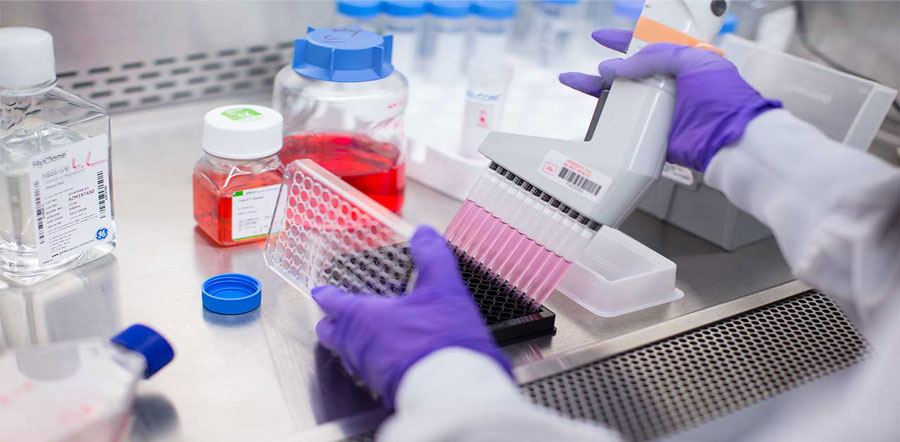Research Ethics
Lilly strives to maintain the highest standards of ethical behavior at all stages of the development and use of our medicines.
Our responsibility to people begins in our laboratories. But it doesn’t end there. At all stages of the development and use of our medicines, Lilly strives to maintain the highest standards of ethical behavior. Lilly is one of the first pharmaceutical companies to have established a standing bioethics committee and later a dedicated bioethics program. Our bioethics program is designed to address the increasingly complex and fast-paced ethical challenges of global pharmaceutical research, development and commercialisation to protect and advocate for: the rights and well-being of research participants and patients, and the integrity of the scientific process and its applications for health care. Learn more about our Research Ethics at lilly.com.
Animal Care and Use
Regulations that govern the approval of new medicines dictate that all potential treatments be evaluated in animals prior to testing in humans. The reason for this is that human and animal physiology is so complex, that to date, non-animal research models cannot tell us all we need to know about how a potential new treatment functions in a human. Therefore, without animal research, it would not be possible to bring life-changing medicines to the people who need them.
Our Commitment to Responsible Animal Research
At Lilly, we know we have an ethical and a scientific responsibility for the welfare of animals used in research and we work to maintain the highest standards of animal care.
All Lilly-owned animal testing facilities worldwide are accredited by the Association for Assessment and Accreditation of Laboratory Animal Care (AAALAC) and are subject to external review and inspection. We comply fully with all Regulations and Guidance, including European Directive 63/2010 and the Animals (Scientific Procedures) Act 1986.
All Lilly employees and third parties who work with animals in research are required to comply with all applicable laws, regulations, codes of conduct and standards regarding the care and use of animals as well as Lilly’s Animal Care and Use Principles, which are aligned to the 3Rs (Replacement, Reduction and Refinement); even when these principles are more stringent than applicable local laws. Any staff involved in working with animals must be appropriately trained and qualified to ensure that they are competent, that they are aware of humane and ethical issues, and that they demonstrate respect for all research animals.
Further information about Lilly’s global approach to animal care and use can be found at Lilly.com.
Principles of Medical Research
Principles of Medical Research
Clinical Trials
Clinical Trials

